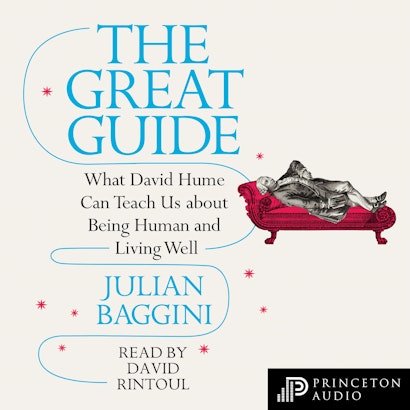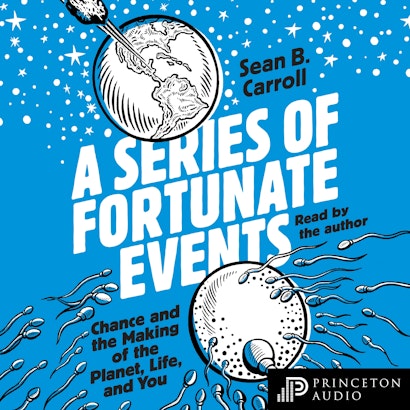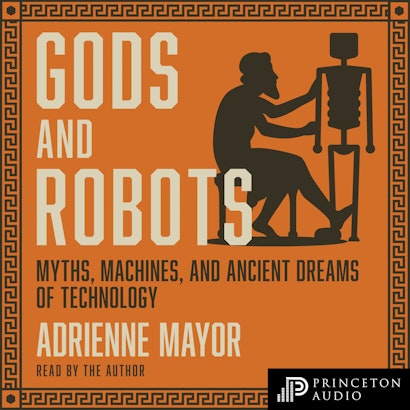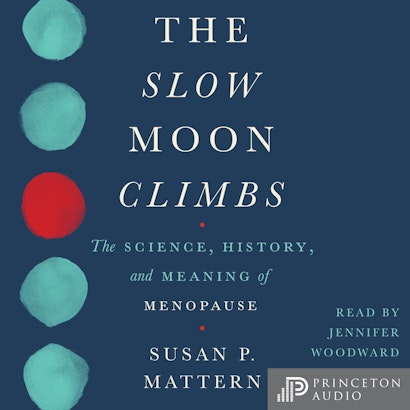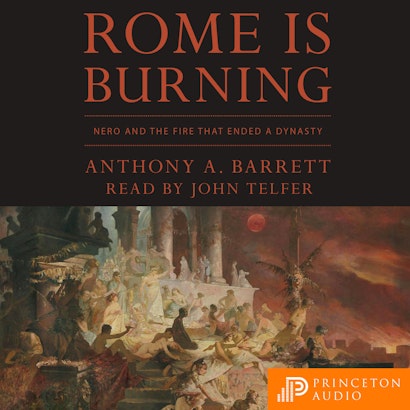Just in time for summer lounging, we invite you to browse a selection of our audiobooks, brought to you through our publishing program, Princeton Audio. Our commitment to quality is central to our audio publishing, and we deliver the finest narration and sound editing as well as a broad distribution network that allows us to reach scholars, students, and engaged listeners everywhere. We invite you to browse our featured titles below, visit our audiobooks page where you can learn more about our audio publishing program and read about featured narrators, or check out our full list of Princeton Audio titles.
Nature, it has been said, invites us to eat by appetite and rewards by flavor. But what exactly are flavors? Why are some so pleasing while others are not? Delicious is a supremely entertaining foray into the heart of such questions. With generous helpings of warmth and wit, Rob Dunn and Monica Sanchez offer bold new perspectives on why food is enjoyable and how the pursuit of delicious flavors has guided the course of human history.
David Hume (1711–1776) is perhaps best known for his ideas about cause and effect and his criticisms of religion, but he is rarely thought of as a philosopher with practical wisdom to offer. Yet Hume’s philosophy is grounded in an honest assessment of nature—human nature in particular. The Great Guide is an engaging and eye-opening account of how Hume’s thought should serve as the basis for a complete approach to life.
In 1177 B.C., marauding groups known only as the “Sea Peoples” invaded Egypt. The pharaoh’s army and navy defeated them, but the victory so weakened Egypt that it soon slid into decline, as did most of the surrounding civilizations. Eric Cline tells the gripping story of how the end was brought about by multiple interconnected failures, ranging from invasion and revolt to earthquakes, drought, famine, and the cutting of international trade routes. Bringing to life a vibrant multicultural world, he draws a sweeping panorama of the empires of the age and shows that it may have been their very interdependence that hastened their dramatic collapse.
Why is the world the way it is? How did we get here? Does everything happen for a reason or are some things left to chance? Philosophers and theologians have pondered these questions for millennia, but startling scientific discoveries over the past half century are revealing that we live in a world driven by chance. A Series of Fortunate Events tells the story of the awesome power of chance and how it is the surprising source of all the beauty and diversity in the living world.
What can a house tell us about the person who lives there? Do we shape the buildings we live in, or are we formed by the places we call home? And why are we especially fascinated by the houses of the famous and often long-dead? In Lives of Houses, a group of notable biographers, historians, critics, and poets explores these questions and more through fascinating essays on the houses of great writers, artists, composers, and politicians of the past.
Making even the most enigmatic scientific ideas accessible and captivating, this deeply insightful book illuminates why physics matters to everyone and calls one and all to share in the profound adventure of seeking truth in the world around us.
Since the 1970s, an important new figure has appeared on the center stage of American evangelicalism—the celebrity preacher’s wife. Although most evangelical traditions bar women from ordained ministry, many women have carved out unofficial positions of power in their husbands’ spiritual empires or their own ministries. The biggest stars—such as Beth Moore, Joyce Meyer, and Victoria Osteen—write bestselling books, grab high ratings on Christian television, and even preach. In this engaging book, Kate Bowler offers a sympathetic and revealing portrait of megachurch women celebrities, showing how they must balance the demands of celebrity culture and conservative, male-dominated faiths.
The first robot to walk the earth was a bronze giant called Talos. This wondrous machine was created not by MIT Robotics Lab, but by Hephaestus, the Greek god of invention. More than 2,500 years ago, long before medieval automata, and centuries before technology made self-moving devices possible, Greek mythology was exploring ideas about creating artificial life—and grappling with still-unresolved ethical concerns about biotechne, “life through craft.” In this compelling book, Adrienne Mayor tells the fascinating story of how ancient Greek, Roman, Indian, and Chinese myths envisioned artificial life, automata, self-moving devices, and human enhancements—and how these visions relate to and reflect the ancient invention of real animated machines.
Are the ways we look at menopause all wrong? Susan Mattern says yes and, in The Slow Moon Climbs, reveals just how wrong we have been. From the rainforests of Paraguay to the streets of Tokyo, Mattern draws on historical, scientific, and cultural research to show how perceptions of menopause developed from prehistory to today. Introducing new ways of understanding life beyond fertility, Mattern examines the fascinating “Grandmother Hypothesis,” looks at agricultural communities where households relied on postreproductive women for the family’s survival, and explores the emergence of menopause as a medical condition in the Western world. The Slow Moon Climbs casts menopause in the positive light it deserves—as an essential juncture and a key factor in human flourishing.
According to legend, the Roman emperor Nero set fire to his majestic imperial capital on the night of July 19, 64 AD and fiddled while the city burned. It’s a story that has been told for more than two millennia—and it’s likely that almost none of it is true. In Rome Is Burning, distinguished Roman historian Anthony Barrett sets the record straight, providing a comprehensive and authoritative account of the Great Fire of Rome, its immediate aftermath, and its damaging longterm consequences for the Roman world.
For two hundred years, conservatism has defied its reputation as a backward-looking creed by confronting and adapting to liberal modernity. By doing so, the Right has won long periods of power and effectively become the dominant tradition in politics. Yet, despite their success, conservatives have continued to fight with each other about how far to compromise with liberalism and democracy—or which values to defend and how. In Conservatism, Edmund Fawcett provides a gripping account of this conflicted history, clarifies key ideas, and illuminates quarrels within the Right today.
Antarctica, the ice kingdom hosting the South Pole, looms large in the human imagination. The secrets of this vast frozen desert have long tempted explorers, but its brutal climate and glacial shores notoriously resist human intrusion. Land of Wondrous Cold tells a gripping story of the pioneering nineteenth-century voyages, when British, French, and American commanders raced to penetrate Antarctica’s glacial rim for unknown lands beyond. These intrepid Victorian explorers—James Ross, Dumont D’Urville, and Charles Wilkes—laid the foundation for our current understanding of Terra Australis Incognita.


